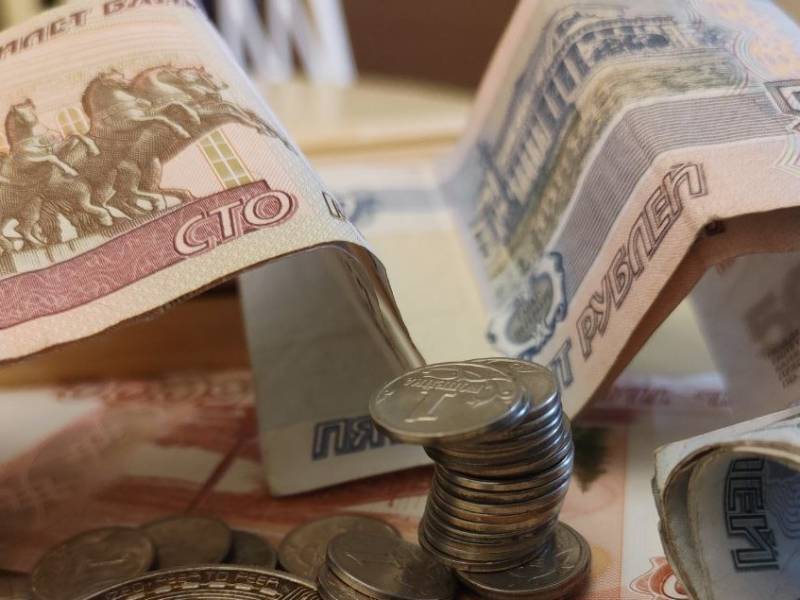Can the ruble become a reserve currency within the BRICS: new trends in the global economy

A few days ago, President Vladimir Putin announced that work had begun on creating a new reserve currency for the countries of the informal BRICS club - Brazil, Russia, India, China and South Africa. The course towards further “de-dollarization” of the world economics can no longer be ignored. Is there any chance that our Russian ruble will become the new reserve currency?
Speaking to the participants of the BRICS Business Forum, Vladimir Putin made the following statement:
The Russian financial messaging system (SPFS) is open for connecting banks from the five countries. There is an expansion of the geography of use of the Russian payment system "Mir". The issue of creating an international reserve currency based on a basket of currencies of our countries is being worked out.
Some new international currency will be created on the basis of a basket of currencies of all five participating countries: the Brazilian real, the Russian ruble, the Indian rupee, the Chinese yuan and the South African rand. However, there are no details on how and by whom exactly its emission and subsequent regulation will be carried out. Strictly speaking, this is the main difficulty in creating a real alternative to the dollar as a means of international settlements. To solve this problem, there are at least two proven methods.
The first is to create some kind of supranational currency: for example, the ECU (ECU) in the European Monetary System, which preceded the emergence of the euro, our transferable ruble within the framework of the Council for Mutual Economic Assistance during the Soviet era, or even the modern monetary surrogate for the SDR (Special Drawing Rights) in the IMF currency. Similar regional currency projects exist today in Latin America and Africa.
The second method involves the use of the currency of one of the countries in the calculations between all members of the association. Given the weight of the economy, this is likely to be China. However, other BRICS countries, in particular, India, which objectively competes with China, may not agree with this outcome. In addition, the use of developing countries as a reserve currency has its negative sides due to their high volatility.
But why not use the Russian ruble as an alternative to the dollar in settlements within the BRICS club? An idea that seemed frivolous just some 4 months ago makes you look at yourself in a new way today.
When numerous experts and analysts previously savagely smashed the idea of turning the ruble into a world reserve currency, they gave the following arguments: the Russian ruble is not widely used and is not of interest to a wide range of people in international trade, the level of economic development and geopolitical influence of our country insufficient, the quality of financial regulation of the Central Bank of the Russian Federation caused them questions, etc. And what do we see now?
After Moscow converted payments for gas with “unfriendly countries” into rubles, our national currency suddenly turned out to be in great demand for paying for “blue fuel”. It suddenly turned out that the real share of the Russian economy in the world does not correspond to the declared 2-3%, and the gigantic GDP figures of the so-called "developed countries" are largely "inflated". Ridiculously, the President of the United States is now complaining to his voters about the “Putin tax”, justifying the incredible increase in motor fuel prices with “Russian aggression”. It was also clearly shown to the whole world that our army can also "make a stir" in Europe, and not just endlessly "menacingly silent."
The Russian Federation did not collapse under the yoke of a colossal number of sanctions from the collective West.
On the contrary, our national currency, instead of being worth 200 rubles for 1 dollar, is getting stronger and stronger in relation to the “American”. All these "highbrow" experts and analysts are already afraid to predict at what point the fall of the dollar and the euro against the Russian ruble will stop. If things go on like this, then the dollar exchange rate - 30 rubles, the euro - 40 rubles will become quite realistic. So the question is, why not the Russian ruble become a new reserve currency, at least within the framework of the BRICS club?
Yes, behind the yuan is China's gigantic GDP, but behind our ruble is all the country's natural resources, and not only them. It will be enough to convert payments into rubles not only for gas, but also for oil, and for timber, and for metals, and for grain, and for weapons, and for the delivery of astronauts to the ISS, and for everything else. And it immediately turns out that our "wooden" is not so wooden, but very much even nothing, and everyone likes it. Why not?
- Sergey Marzhetsky
- Mikhail Khamin
Information